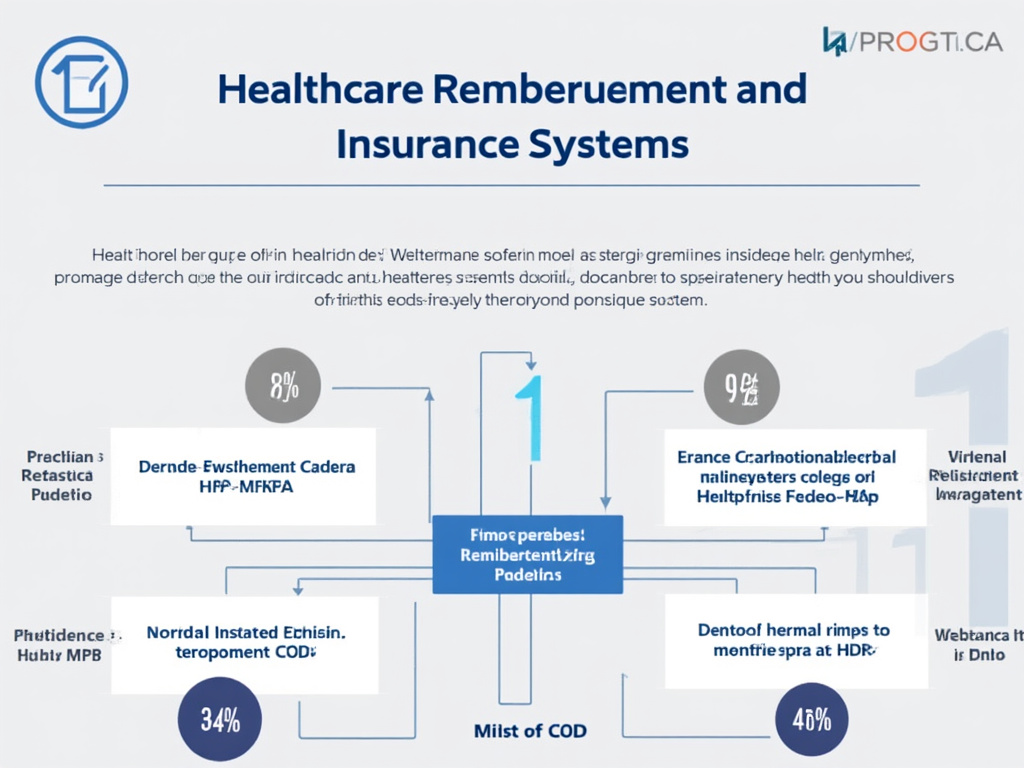



In the dynamic fields of biotechnology and biomedical sciences, the role of a Chief Medical Officer is crucial for bridging the gap between clinical practice and innovative research. For medical professionals looking to transition into executive leadership, the Chief Medical Officer position offers a unique opportunity to influence the direction of medical advancements and healthcare solutions. This blog post delves into the responsibilities of a Chief Medical Officer in the biotech and biomedical sectors and provides a comprehensive guide for medical professionals aspiring to make this transition.
A Chief Medical Officer in the biotech and biomedical industries plays a pivotal role in integrating clinical expertise with business strategy. Key responsibilities include:

To excel as a Chief Medical Officer in the biotech and biomedical industries, a blend of clinical knowledge, leadership skills, and business acumen is essential. Key skills include:
The Chief Medical Officer ensures that the company's clinical objectives are in harmony with its business goals. By integrating medical insights into strategic planning, the CMO helps steer the company towards innovations that are both medically significant and commercially viable.

Clinical research and development are at the heart of biotech and biomedical advancements. The Chief Medical Officer oversees these initiatives, ensuring that research is conducted ethically, efficiently, and in compliance with all regulatory requirements. This role is crucial for the successful development and approval of new medical products and therapies.
Compliance with medical regulations is non-negotiable in the biotech and biomedical industries. The Chief Medical Officer is responsible for navigating the complex regulatory landscape, ensuring that all products meet the necessary standards for safety and efficacy. This includes overseeing the preparation of documentation for regulatory submissions and managing relationships with regulatory bodies.
The Chief Medical Officer promotes a culture of innovation by encouraging collaboration between clinical and technical teams. By facilitating interdisciplinary teamwork, the Chief Medical Officer helps drive the development of cutting-edge medical technologies and solutions that address real-world healthcare challenges.

The medical field is constantly evolving with new research findings and technological innovations. Chief Medical Officers must stay informed about the latest developments to ensure that their companies remain competitive and can incorporate new advancements into their strategies.
Navigating the intricate web of medical regulations can be daunting. Chief Medical Officers must ensure that all aspects of the company's operations comply with relevant laws and standards, which requires meticulous attention to detail and a thorough understanding of regulatory processes.
Chief Medical Officers must adeptly balance the company's clinical objectives with its business goals. This involves making strategic decisions that advance medical research while also ensuring financial sustainability and market competitiveness.
Biotech and biomedical projects often involve collaboration across various disciplines. Chief Medical Officers must effectively manage and lead diverse teams, fostering an environment where different expertise can synergize to achieve common goals.

For medical professionals considering a move into a Chief Medical Officer role, the transition involves leveraging clinical expertise while acquiring new leadership and business skills. Here's how to navigate this pathway:
Medical professionals possess invaluable insights into patient care, clinical workflows, and the practical challenges of healthcare delivery. This firsthand experience is essential for developing medical strategies that are both effective and feasible.
While clinical knowledge forms a strong foundation, aspiring Chief Medical Officers should enhance their leadership and business acumen. This may involve:
Advanced education can bridge the gap between medicine and executive leadership. Consider:
Hands-on experience is crucial for transitioning into a Chief Medical Officer role. Opportunities include:
Building a strong professional network can provide guidance and open doors to executive opportunities. Seek out:


Transitioning from a clinical role to a Chief Medical Officer position is challenging but achievable. Numerous medical professionals have successfully made this shift by leveraging their clinical insights and acquiring the necessary leadership and business skills.




These examples demonstrate that with dedication, education, and strategic career moves, medical professionals can thrive in Chief Medical Officer roles.
The role of a Chief Medical Officer in the biotech and biomedical industries is multifaceted, requiring a deep understanding of both clinical practices and technological advancements. For medical professionals aspiring to step into this executive role, acquiring specific technical knowledge is paramount. This blog post delves into the essential technical competencies that CMOs need to master to drive innovation and ensure clinical excellence in their organizations.
CMOs must be well-versed in the regulations set forth by the Food and Drug Administration (FDA). This includes knowledge of the regulatory pathways for drug and medical device approvals, understanding the requirements for clinical trials, and ensuring that all products meet safety and efficacy standards.
Ensuring compliance with the Health Insurance Portability and Accountability Act (HIPAA) is crucial. CMOs must oversee the protection of patient data, ensuring that all clinical practices adhere to privacy laws and that data handling processes are secure.
For companies operating globally, understanding international regulatory standards is essential. This includes compliance with the European Medicines Agency (EMA) regulations and other international bodies governing medical research and product approvals.

CMOs need expertise in designing robust clinical trials. This includes understanding different phases of clinical research, selecting appropriate study designs, and ensuring that trials are ethically and scientifically sound.
Applying evidence-based practices is fundamental. CMOs should be adept at interpreting clinical data, integrating research findings into practice, and making informed decisions that enhance patient outcomes.
Proficiency in statistical methods is necessary to analyze clinical trial data effectively. This involves understanding biostatistics, data interpretation, and the ability to draw meaningful conclusions from complex datasets.

CMOs must oversee the management of large volumes of clinical data. This includes ensuring data accuracy, integrity, and accessibility for research and decision-making purposes.
Understanding health informatics is crucial for integrating technology into clinical practices. CMOs should be familiar with electronic health records (EHRs), data interoperability, and the use of informatics tools to enhance clinical workflows.
Leveraging advanced analytics and artificial intelligence (AI) can drive innovation in healthcare. CMOs should explore how machine learning algorithms and predictive analytics can improve patient care, optimize clinical trials, and streamline operations.

CMOs need to oversee the implementation and optimization of EMR systems. This includes selecting the right software, ensuring seamless integration with existing systems, and training staff to use these tools effectively.
Ensuring interoperability between different health IT systems is essential for efficient data sharing and collaboration across departments and with external partners.
Protecting sensitive medical data from cyber threats is a critical responsibility. CMOs must work closely with IT departments to establish robust cybersecurity measures and protocols.

Understanding the lifecycle of medical device and biotechnology product development is crucial. CMOs oversee the process from concept and design to testing, regulatory approval, and market launch.
Ensuring that products meet quality standards is paramount. CMOs must implement quality assurance protocols to maintain high standards of safety and effectiveness.
Fostering a culture of innovation within the organization involves staying abreast of the latest technological advancements and integrating them into product development strategies.

Effective project management ensures that clinical projects are completed on time and within budget. CMOs should be proficient in planning, resource allocation, and monitoring project progress.
Adopting agile methodologies can enhance flexibility and responsiveness in managing healthcare projects. CMOs should understand how to implement agile practices to improve project outcomes.
Identifying and mitigating risks is essential for successful project management. CMOs must develop strategies to anticipate potential challenges and address them proactively.

CMOs must establish and maintain quality standards across all clinical and operational processes. This involves developing policies and procedures that ensure consistency and excellence.
Implementing continuous improvement initiatives helps organizations enhance their quality assurance practices. CMOs should foster a culture that encourages ongoing evaluation and refinement of processes.
Regular compliance audits are necessary to ensure adherence to quality standards and regulatory requirements. CMOs oversee these audits and address any identified gaps or deficiencies.

AI and machine learning are revolutionizing healthcare by enabling predictive analytics, personalized medicine, and automated diagnostics. CMOs should explore how these technologies can be integrated into clinical practices to enhance patient care.
The rise of telemedicine has expanded access to healthcare services. CMOs need to understand the technologies behind remote consultations and patient monitoring to implement effective telehealth solutions.
Advancements in genomics are paving the way for personalized medicine. CMOs should stay informed about genetic research and its applications in developing tailored treatment plans for patients.

CMOs must navigate the complexities of healthcare reimbursement models. This includes understanding fee-for-service, value-based care, and bundled payment systems to ensure that clinical services are adequately reimbursed.
Knowledge of insurance processes and payer requirements is essential for securing funding for clinical trials and healthcare services. CMOs should collaborate with financial departments to streamline these processes.
Conducting cost-benefit analyses helps in making informed decisions about the allocation of resources. CMOs need to assess the financial implications of clinical initiatives to ensure sustainability and profitability.

The role of a Chief Medical Officer in the biotech and biomedical industries is both dynamic and essential, driving clinical excellence and ensuring that medical advancements translate into effective healthcare solutions. For medical professionals, transitioning into a CMO role offers a pathway to influence the future of healthcare profoundly. By leveraging clinical expertise, acquiring leadership and business skills, and embracing continuous learning, medical professionals can successfully navigate this transition and contribute to groundbreaking advancements in the biotech and biomedical fields.
Embarking on this journey requires commitment and strategic planning, but the impact one can make at the intersection of medicine and leadership is both fulfilling and transformative.
If you found this article helpful, feel free to share it with colleagues or reach out with your own experiences transitioning into executive medical roles!